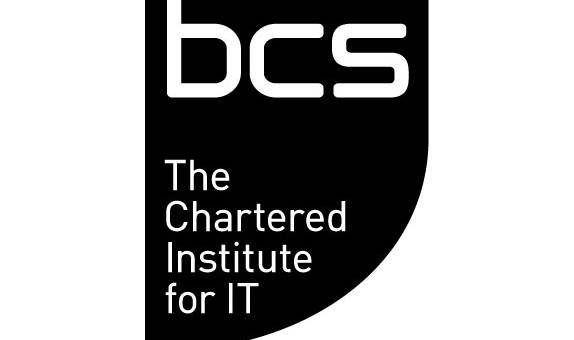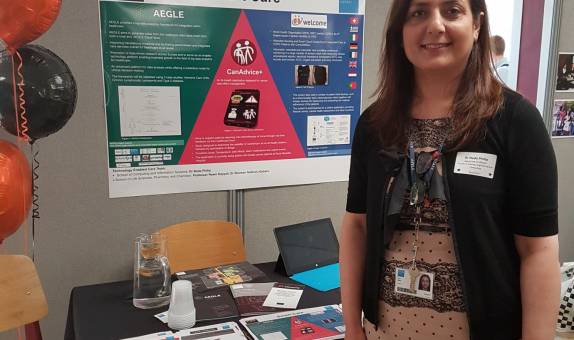Network & Information Security MSc
Why choose this course?
Cyber security, the umbrella term for computer, network and information security, is of increasing importance. New legislation, technologies, vulnerabilities and threats necessitate frequent system updates.
This course offers a critical awareness of current developments and future trends in cryptography, network security and mobile/wireless security. You will explore techniques and technologies to combat threats such as malware, social engineering, data leakage or zero-day attacks, based on understanding secure authentication mechanisms, access control, intrusion detection, information security policies and user education. A project/dissertation will enable you to study an area of interest in depth – this can be an excellent selling point.
| Mode | Duration | Attendance | Start date |
|---|---|---|---|
| Full time | 1 year | Network & Information Security MSc | January 2025, September 2025 |
| Full time | 2 years including professional placement | Network & Information Security MSc | January 2025, September 2025 |
| Part time | 2–3 years | Network & Information Security MSc | January 2025, September 2025 |
| Full time | 1 year | Network & Information Security with Management Studies MSc | January 2025, September 2025 |
| Full time | 2 years including professional placement | Network & Information Security with Management Studies MSc | January 2025, September 2025 |
| Part time | 2–3 years | Network & Information Security with Management Studies MSc | January 2025, September 2025 |
| Main Location | Penrhyn Road |
Reasons to choose Kingston University
- The cyber pathway of this course is fully accredited by BCS, The Chartered Institute for IT and is a fully-certified NCSC Certified Masters, which is a sign of national excellence*. You may also combine this course with management studies, setting your knowledge in a management context.
- You can use a state-of-the-art cyber lab, with specialist cyber security tools, resources and equipment. This enables you to work in a safe sandbox environment for practical experiments with malware, penetration testing, port scanning and other ethical hacking activities.
- You may combine this course with management studies, setting your knowledge in a management context.
*Re-certification for 2025/26 entry is currently in progress.
Accreditation

British Computer Society

This degree has been accredited by the British Computer Society (BCS), The Chartered Institute for IT, until June 2025. We are seeking reaccreditation for September 2025 intake onwards. Accreditation is a mark of assurance that the degree meets the standards set by BCS. An accredited degree entitles you to professional membership of BCS, which is an important part of the criteria for achieving Chartered IT Professional (CITP) status through the Institute.
Some employers recruit preferentially from accredited degrees, and an accredited degree is likely to be recognised by other countries that are signatories to international accords. This degree is accredited by BCS for the purposes of partially meeting the academic requirement for registration as a Chartered IT Professional.
This degree has been accredited by BCS, on behalf of the Engineering Council for the purposes of partially meeting the academic requirement for a Chartered Engineer (CEng). Accreditation is a mark of assurance that the degree meets the standards set by the Engineering Council in the UK Standard for Professional Engineering Competence (UK-SPEC). An accredited degree will provide you with some or all of the underpinning knowledge, understanding and skills for eventual registration as an Incorporated (IEng) or Chartered Engineer (CEng).
For full details of exemption and accreditation levels, please check the BCS course search.
The Faculty is a long-time member of BCS. For many years we have hosted meetings of the local BCS Kingston and Croydon Branch, contributing to members' continuing professional development programmes.
Please note: The programme delivered at our partner institution overseas is not currently accredited by the BCS.
What you will study
You will gain a critical awareness of the current developments and future trends in cryptography, network security and wireless security, starting from the mathematical principles behind cryptographic algorithms and moving on to secure network protocols.
As security and dependability are inextricably linked, the course also covers dependable and highly available architectures. Techniques and technologies to combat threats will be explored, from secure authentication mechanisms, through firewalls, to information policies and user education to combat social engineering and data leakage.
The Management Studies route will set your technical knowledge in a management context.
The full MSc course consists of an induction programme, four taught modules, and a project dissertation. Please note that this is an indicative list of modules and is not intended as a definitive list.
For a student to go on placement they are required to pass every module first time with no reassessments. It is the responsibility of individual students to find a suitable paid placement. Students will be supported by our dedicated placement team in securing this opportunity.
Network and Information Security MSc modules
Network and Information Security MSc with Management Studies
Core modules
Cryptography and Applications
30 credits
This core module provides an overview of cryptography and various applications in information security, communication and computer science. This module deals with mathematical principles on which cryptography is based to include cryptographic algorithms, including practical examples of breaking codes. Additional techniques such as information hiding and secret sharing are progressively introduced. An introduction to advanced and emerging cryptographic techniques such as elliptic curve cryptography and quantum techniques.
On successful completion of the module, students will be able to:
- review concepts in computational number theory and their relevance for the design of secure and efficient techniques in cryptography
- describe and deploy common symmetric and asymmetric encryption algorithms used as standards in modern cryptosystems
- compare and contrast the properties of hash functions and attacks on them, and be familiar with their use in digital signature algorithms and their role in security protocols
- explain techniques for information hiding and secret sharing, and analyse their applications in security
- analyse cryptographic protocols for implementing a wide range of security requirements
- critically discuss applications of cryptography including the latest and future trends.
Network and Information Security
30 credits
This module provides an overview of a wide range of security aspects and techniques of computer networks, both cabled and wireless. It will introduce basic aspects of Information Security, comprising Security and Risk Management as well as Policies and Standards. It also covers Ethical and legal aspects of security and hence addresses the employability of the students in their future career. The module then goes on to the topic of Network Security, both from a theoretical and practical aspect: network attacks, vulnerabilities and controls are introduced and examined in practical lab sessions. Finally, cutting-edge topics such as Web and Cloud security complete the picture.
Data Communications
30 credits
This core module provides a working knowledge of data communications covering TCP/IP networks and digital communications. Topics covered include transport layer services, multiplexing, TCP congestion control, network layer – network service models, IP addressing and IP network design, routing principles, dynamic routing, digital transmission, modulation, multiplexing and channel coding.
On successful completion of the module, you will be able to:
- Compare computer network architectures.
- Evaluate the performance of TCP under varying flow control and congestion conditions.
- Design an IP addressing scheme for a network.
- Define and calculate transmission performance over a communication link.
- Study and analyse characteristics of modulation methods.
Project Dissertation
60 credits
This module constitutes the major individual piece of work of the masters programme where the student carries out a project involving independent critical research, design and implementation (where applicable).
On successful completion of the module, students will be able to:
- Select, justify and use effectively the research methods and techniques appropriate for particular cases in order to carry out a literature search and an independent work of research
- Critically identify the need to position their research in the wider academic or business context and structure the dissertation format to agreed conventions
- Plan, manage and critically evaluate the project using the techniques and tools needed in order to bring it in successfully on time and within resourcing limits
- Identify and critically analyse real-world problems or knowledge gaps to which academic concepts and methods can be realistically applied to improve or resolve the problem situation
- Apply skills to show an ability to engage in academic and professional communication with others in their field through report and presentation
- Present critical awareness in applying appropriate legal, social or ethical obligations and when required, respond to the financial and other constraints of a corresponding business environment.
Optional modules
Wireless Communications and Networks
30 credits
The module addresses theory and practice of wireless communication systems and networks, including the most recent wireless communications standards.
The first part will focus on the propagation characteristics of wireless channels and the main techniques for efficient communication, including modulation and channel coding. Characteristics and performance limits of wireless systems, techniques and tools to analyse them and methods for their design will also be covered.
The second part of the module will cover real-world wireless systems and networks, including wireless broadband systems and wireless sensor networks. It will provide practical and useful knowledge that can be readily applied in the wireless industry.
It covers the real-world, practical knowledge needed to understand, design, evaluate, deploy, test, validate and debug WLAN, WMAN and WPAN, as well as GPRS/ UMTS/ 3G and 4G and beyond networks and systems and Wireless Sensor Networks (WSN). Advanced technologies such as ultra-wideband communications and cognitive radio will also be addressed.
Mobile Security
30 credits
(For NCSC Certified Pathway)
This module will provide you with a comprehensive knowledge into the main areas of mobile computing and its security aspects. Mobile communication modalities will be covered, including 3G/4G communication networks, WiFi and personal area networks, mobile privacy and ethical issues. The gained knowledge will be applied in different mobile computing business environments such as mobile healthcare (m-health), mobile commerce (m-commerce), mobile learning (m-learning) and mobile web services (m-WS). Mobile security assessment will be introduced in order to formulate appropriate security requirements. Key management protocols in typically ad hoc, wireless and location-dynamic environments will be presented and analysed. Emerging topics such as the Internet of Things (IoT), mobile clouds and distributed social network security will also be discussed. The module also provides hands-on practical exposure to apps development in location and context aware environments.
Multimedia Communications
30 credits
The module addresses theory and practice of multimedia communication systems and networks, with a special focus on multimedia signals (audio, images and video) and relevant compression and transmission techniques.
The first part of the module focuses in particular on the representation of multimedia sources and on lossless and lossy compression methods for data, audio, image and video signals.
The second part of the module focuses in particular on the transmission of multimedia sources over communication systems and networks and on the strategies adopted to protect multimedia content from channel and network errors and losses.
Core modules
Cryptography and Applications
30 credits
This core module provides an overview of cryptography and various applications in information security, communication and computer science. This module deals with mathematical principles on which cryptography is based to include cryptographic algorithms, including practical examples of breaking codes. Additional techniques such as information hiding and secret sharing are progressively introduced. An introduction to advanced and emerging cryptographic techniques such as elliptic curve cryptography and quantum techniques.
On successful completion of the module, students will be able to:
- review concepts in computational number theory and their relevance for the design of secure and efficient techniques in cryptography
- describe and deploy common symmetric and asymmetric encryption algorithms used as standards in modern cryptosystems
- compare and contrast the properties of hash functions and attacks on them, and be familiar with their use in digital signature algorithms and their role in security protocols
- explain techniques for information hiding and secret sharing, and analyse their applications in security
- analyse cryptographic protocols for implementing a wide range of security requirements
- critically discuss applications of cryptography including the latest and future trends.
Network and Information Security
30 credits
This module provides an overview of a wide range of security aspects and techniques of computer networks, both cabled and wireless. It will introduce basic aspects of Information Security, comprising Security and Risk Management as well as Policies and Standards. It also covers Ethical and legal aspects of security and hence addresses the employability of the students in their future career. The module then goes on to the topic of Network Security, both from a theoretical and practical aspect: network attacks, vulnerabilities and controls are introduced and examined in practical lab sessions. Finally, cutting-edge topics such as Web and Cloud security complete the picture.
Data Communications
30 credits
This core module provides a working knowledge of data communications covering TCP/IP networks and digital communications. Topics covered include transport layer services, multiplexing, TCP congestion control, network layer – network service models, IP addressing and IP network design, routing principles, dynamic routing, digital transmission, modulation, multiplexing and channel coding.
On successful completion of the module, you will be able to:
- Compare computer network architectures.
- Evaluate the performance of TCP under varying flow control and congestion conditions.
- Design an IP addressing scheme for a network.
- Define and calculate transmission performance over a communication link.
- Study and analyse characteristics of modulation methods.
Business in Practice
30 credits
This postgraduate module covers the theory and practice of the business and management needs of students from different academic contexts such as, but not limited to Science, Engineering, Computing and Health Services who are aspiring team leaders, managers, and entrepreneurs in business within the context of the commercial, public, voluntary, or academic sector.
Students will investigate business topics ranging from finance, accounting, budgeting, and marketing, to organisational management by developing the leadership skills to meet business challenges and to cope with their complexity.
The module will explain and put into context business concepts to graduates from a variety of sectors including those encompassed by Science, Engineering, Computing and Health Services.
Project Dissertation
60 credits
This module constitutes the major individual piece of work of the masters programme where the student carries out a project involving independent critical research, design and implementation (where applicable).
On successful completion of the module, students will be able to:
- Select, justify and use effectively the research methods and techniques appropriate for particular cases in order to carry out a literature search and an independent work of research
- Critically identify the need to position their research in the wider academic or business context and structure the dissertation format to agreed conventions
- Plan, manage and critically evaluate the project using the techniques and tools needed in order to bring it in successfully on time and within resourcing limits
- Identify and critically analyse real-world problems or knowledge gaps to which academic concepts and methods can be realistically applied to improve or resolve the problem situation
- Apply skills to show an ability to engage in academic and professional communication with others in their field through report and presentation
- Present critical awareness in applying appropriate legal, social or ethical obligations and when required, respond to the financial and other constraints of a corresponding business environment.
Please note
Optional modules only run if there is enough demand. If we have an insufficient number of students interested in an optional module, that module will not be offered for this course.
Work placement scheme
Many postgraduate courses at Kingston University enable students to take the option of a 12-month work placement as part of their course. Although the University supports students in finding a placement and organises events to meet potential employers, the responsibility for finding the work placement is with the student; we cannot guarantee the placement, just the opportunity to undertake it. You may find securing a professional placement difficult as they are highly competitive and challenging, but they are also incredibly rewarding. It is very important to prepare and apply yourself if this is the route you wish to take. Employers look for great written and oral communication skills and an excellent CV/portfolio. As the work placement is an assessed part of the course, it is covered by a student's Student Route visa.
Find out more about the postgraduate work placement scheme.
Entry requirements
Teaching and assessment
Who teaches this course?
The course is taught at the School of Computer Science and Mathematics.
The School of Computer Science and Mathematics is driven by the philosophy of 'learning through making'; we focus strongly on facilitating a hands-on experience, student led and owned product portfolios and producing industry-ready graduates.
We utilise a range of innovating teaching and learning approaches in our invigorated and modernised degree programmes; combining studio practices, project-based learning, and context driven lectures to facilitate an informed approach to problem solving.
Postgraduate students may run or assist in lab sessions and may also contribute to the teaching of seminars under the supervision of the module leader
Facilities
Our modern teaching environment
There is a wide range of facilities at our Penrhyn Road campus, where this course is based. You will have access to a modern environment with the latest equipment, including:
- dedicated postgraduate computing laboratories, fully-equipped with fold-flat LCD screens, data-projection systems and high-spec processors
- state-of-the-art hardware and the latest software, including:
- development software and tools - such as Linux, Microsoft.net, Dreamweaver MX, Flash 8, Eclipse, Java 2 Standard and Mobile Editions, tools for Motorola and Nokia phones, UML and CASE tools and NXP Processors Development Kits
- digital signal processors (dsPIC Digital Signal Controllers)
- IP Set Top Box development environment (NXP's STB810)
- electronics laboratory
- a mix of wireless LAN technologies
- subject libraries, online database subscriptions and resource materials
- a postgraduate teaching suite
- the dedicated Graduate Centre on campus, providing seminar rooms and social spaces.
Our dedicated team of IT technicians support the labs and are always on hand to provide assistance.
Resources in London
Kingston is just a 30-minute train journey from central London. Here you can access a wealth of additional libraries and archives, including the British Library and the Institute of Engineering and Technology.
CAVE (Centre for Augmented and Virtual reality Environments)
Students have full access to the University's CAVE (Centre for Augmented and Virtual reality Environments), a treasure trove of specialist equipment, including:
- virtual reality headsets and specialist equipment that tracks eye movements, brain activity
- state-of-the-art technology allowing students to monitor the user's levels of experience and enjoyment
- professional high-dynamic range (HDR), UHD, and light field (plenoptic/holographic) cameras and displays to capture and represent (also remotely) immersive environments
- event-driven (a.k.a. neuromorphic) visual sensors, capturing scenes mimicking the human eye.
This lab has also allowed computing students to work closely and collaborate with design students, promoting interdisciplinary work and allowing students to begin successful partnerships creating innovative products at the forefront of technology.
Due to this innovative technology and collaborative learning environment Kingston University has become one of only 12 universities to have obtained an educational partnership with Sony (2017).
Students will also have the possibility to experiment with several types of wireless networks and enterprise scale networking technologies, including Internet of Things communications and 5G with a mobile edge computing testbed.
Extensive computer resources for experimenting with deep learning and blockchain technology are also available, as well as a fully equipped "cyber-lab" for students who wish to focus on security aspects.
Fees for this course
Additional costs
Depending on the programme of study, there may be extra costs that are not covered by tuition fees which students will need to consider when planning their studies. Tuition fees cover the cost of your teaching, assessment and operating University facilities such as the library, access to shared IT equipment and other support services. Accommodation and living costs are not included in our fees. Where a course has additional expenses, we make every effort to highlight them. These may include optional field trips, materials (e.g. art, design, engineering), security checks such as DBS, uniforms, specialist clothing or professional memberships.
Academic Centre of Excellence in Cyber Security Education
Kingston University's commitment to promoting excellent cyber security education has been recognised with a prestigious silver award from the National Cyber Security Centre (NCSC), which is part of GCHQ.
The recognition means the University has been named an Academic Centre of Excellence in Cyber Security Education (ACE-CSE) by the UK's lead technical authority on cyber security – a feat achieved by only 11 other higher education institutions across the United Kingdom. The ACE-CSE programme aims to help close the UK's cyber skills gap by supporting the next generation of cyber experts.
NCSC re-certification of our Cyber pathway for 2025/26 entry is currently in progress.
Find out more about the University's Cyber Centre.
After you graduate
Where this course will take you
Computer, network and information security are current 'hot topics'. They are here to stay, as we will never be able to design or build a system without having to take into account its security in an operational scenario.
Many companies are actively recruiting security specialists at the moment and the major software houses are training their coders in security. In fact, it can be hard to get a job with a large company, even as a software developer, without some appreciation of security.
Graduates have progressed to work at Google, ECS and Lloyds, in roles such as ethical hacker, cyber security engineer and security consultant.
Have a look at ITJobsWatch.
Careers and recruitment advice
The Faculty of Science, Engineering and Computing has a specialist employability team. It provides friendly and high-quality careers and recruitment guidance, including advice and sessions on job-seeking skills such as CV preparation, application forms and interview techniques. Specific advice is also available for international students about the UK job market and employers' expectations and requirements.
The team runs employer events throughout the year, including job fairs, key speakers from industry and interviews on campus. These events give you the opportunity to hear from, and network with, employers in an informal setting.
What our students say
What this course offers you
- The Network and Information Security course gives you the knowledge and skills needed to equip you with a technical knowledge of current and emerging technologies.
- The project/dissertation gives you the chance to study an area of interest in greater depth and gain valuable research skills. It is usually relevant to your career so provides an excellent selling point when you are looking for a job or promotion.
- If you are an overseas student, we will help you to carry out a project either based in your home country or that will be of specific relevance when you return home.
- We teach the course in a specialist laboratory, with access to state-of-the-art networking and security equipment. Industry contacts provide demonstrations of current technology for you to explore.
- We also organise vendor seminars to expose you to current and emerging technologies.
- Teaching staff are research active, which keeps your learning cutting-edge (read more in our Research areas section)
The taught modules aim to prepare you for the job market. Alongside your academic studies, you will gain skills in:
- problem solving and organisation
- data collation, review and synopsis
- communication (oral, written and electronic)
- time management
- co-operation and teamwork
- data collation, review and synopsis
Each module offers a stimulating balance of study, which may include lectures, practical lab work, group working, case studies and presentations. Industry experts often teach on the courses, enhancing your studies.
You also have the chance to network with other professionals in the same situation as yourself. Our postgraduate students often set up study groups to support and encourage to each other.
Kingston offers a part-time option to help you fit your studies around other commitments. We also offer a course in Network and Information Security with Management Studies, which allows you to develop key business and management skills.
Links with business and industry
Industrial Advisory Board
To ensure your studies are kept up to date and answer the needs of business, our courses are created and reviewed in consultation with an advisory board of key industry experts and senior academics. The Board also provides input and advice on our research portfolio.
With members from Google, Microsoft, easyJet, games developer Colossal and Chief Information Officers from local government – our Advisory Board represents the diverse spectrum of industries and public sector organisations that make up the jobs market for our graduates
Current research in this subject
Many of our staff in the Faculty are research active. This ensures they are in touch with the latest thinking and bring best practice to your studies.
Computing research activities are focused around the following main research centres:
- Digital Imaging Research Centre – offering expertise in computer vision, medical imaging, visual surveillance, ambient intelligence, machine learning and computer graphic.
- Wireless Multimedia and Networking Research Group – The research group carries out fundamental and applied research on wireless communications and networking, media streaming and closely related fields.
Extra activities for this course
The range of events and lectures in the Faculty enhances your studies and adds an extra perspective to your learning.
For example, the Digital Information Research Centre (DIRC) runs seminars which have recently covered:
- how social media affects police operations
- dimensionality issues in weighted differential entropy
- link quality based routing framework for wireless sensor networks
- data integration for smart urban transport
- HTTP video streaming adaptation
Course changes and regulations
The information on this page reflects the currently intended course structure and module details. To improve your student experience and the quality of your degree, we may review and change the material information of this course. Course changes explained.
Programme Specifications for the course are published ahead of each academic year.
Regulations governing this course can be found on our website.













